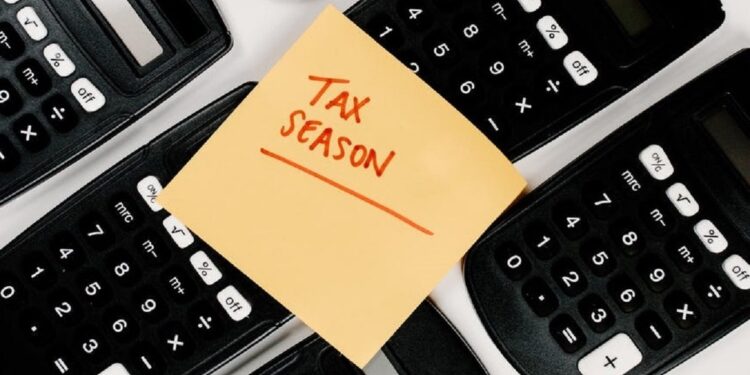As the June 30th deadline for filing 2024 tax returns with the Kenya Revenue Authority (KRA) rapidly approaches, it is vital for every Kenyan to recognize the importance of meeting this obligation. Whether you are employed, self-employed, a student, or currently without an income, the requirement to know how to file tax returns applies to all individuals with a Kenya Revenue Authority Personal Identification Number (KRA PIN). Compliance is more than just a legal necessity; it is a critical component of civic responsibility that supports national development and fiscal planning.
For individuals with income, especially those in formal employment, the process of filing tax returns is relatively straightforward. It begins by accessing the iTax portal at https://itax.kra.go.ke. Once on the portal, users must log in using their KRA PIN and password. In case the password has been forgotten, it can easily be reset through the registered email address. After logging in, the user should navigate to the “Returns” tab and select the option for “File Return.” For employed individuals, the correct form to use is “Income Tax – Resident Individual.” This form requires details such as employment income, PAYE deductions, and any applicable tax reliefs, which can be found on the P9 form provided by the employer. It is crucial to input accurate information to avoid discrepancies and possible penalties. Once the form is filled, it can be submitted online, and an acknowledgment receipt should be downloaded as proof of submission. Below is a breakdown of how to file tax returns for individuals with an income.
How To File Tax Returns For Individuals With Income
- Access the iTax Portal: Navigate to itax.kra.go.ke
- Log In: Enter your KRA PIN and password. If you’ve forgotten your password, utilise the “Forgot Password” feature to reset it via your registered email.
- Navigate to the Returns Section: Click on the “Returns” tab and select “File Return.” Choose “Income Tax – Resident Individual.
- Fill in the Return Form: Input the required details, including your income as per the P9 form provided by your employer. Ensure accuracy in reporting PAYE deductions and any applicable reliefs.
- Submit and Download Acknowledgement: After verifying all information, submit and download the acknowledgement receipt for your records.
For those without a source of income, such as students or unemployed individuals, filing a nil return is mandatory. The process also takes place on the iTax portal. After logging in, the user should select the “File Nil Return” option under the “Returns” tab. They must then confirm their personal details and submit the return. Even though no taxes are due, the submission of nil returns signals compliance and keeps the tax account active and up-to-date. KRA has also simplified the process through the M-Service App, which enables filing on mobile devices, making it more accessible for Kenyans across the country. Here is a breakdown of how to file tax returns for individuals without an income
How To File Tax Returns For Individuals Without An Income (Nil Returns)
-
Log In to iTax: Access your account on the iTax portal.
-
Select Nil Return Option: Under the “Returns” tab, choose “File Nil Return.
-
Confirm Details and Submit: Ensure your personal details are correct, then submit the return. Download the acknowledgement receipt as proof of compliance.
If you missed filing tax returns in previous years, KRA provides an option to file returns for past years through the iTax portal. After logging in, go to the “Returns” tab and select “File Return.” When prompted, choose the tax year you want to file for. Ensure you have accurate income and deduction records for the specific year. If you had no income during that period, you can also file a nil return for the past year. Filing late may attract penalties and interest, but it also helps to regularize your tax status and avoid further enforcement actions from KRA. It’s advisable to consult a tax professional if you have multiple years of pending returns or complex tax matters.
Benefits Of Filing Returns On Time
Filing tax returns comes with numerous benefits. First and foremost, it ensures legal compliance. The Income Tax Act stipulates that all PIN holders must file annual returns. Failure to do so results in penalties: Ksh 2,000 for individuals and Ksh 20,000 for companies, or 5% of the tax due—whichever is higher. These penalties can accrue interest over time, making non-compliance costly.
Secondly, being compliant with tax obligations opens doors to various opportunities. A valid Tax Compliance Certificate (TCC) is a prerequisite for applying for government jobs, bidding for tenders, and accessing certain financial services. Many institutions require a TCC as a show of financial integrity and civic responsibility. It serves as proof that one is in good standing with the tax authorities.
Moreover, filing taxes helps individuals better understand and manage their personal finances. It encourages organized record-keeping and fosters awareness of income, deductions, and expenditures. This financial literacy is essential for making informed investment decisions and achieving long-term financial stability.
Conversely, failing to file tax returns carries several disadvantages. Beyond the monetary penalties, it may also lead to legal action. Persistent non-compliance can result in prosecution, asset seizures, and travel restrictions. Furthermore, non-filers are barred from accessing government services that require a TCC. This can be particularly detrimental for entrepreneurs and job seekers who need to demonstrate tax compliance to advance their careers or businesses.
Prominent Cases Of Failure To Fulfill Statutory Tax Obligations
The consequences of tax evasion are not merely theoretical. Kenya has witnessed several high-profile cases where individuals and companies have faced severe repercussions due to tax non-compliance. One of the most recent cases involved the directors of Purma Holdings, who were charged in 2025 with evading taxes amounting to Ksh 2.2 billion. They were released on a Ksh 50 million bond each, pending court proceedings. This case underscores the seriousness with which KRA treats tax evasion.
Keroche Breweries, a prominent alcoholic beverage manufacturer, has also been embroiled in a lengthy tax dispute with KRA over Ksh 14 billion. The company was accused of misclassifying its products to benefit from lower tax rates, a move that led to extensive legal battles and temporary shutdowns of its operations. This case highlights the importance of correct tax reporting and classification.
British American Tobacco (BAT) Kenya found itself under investigation for discrepancies amounting to $93 million in revenue statements. This raised serious concerns about the potential manipulation of financial records to underreport taxable income, further reinforcing the need for corporate transparency and accountability.
Another significant case involved Afrigo Development Co. Ltd., a Kenyan firm fined over $24 million after KRA discovered an elaborate tax evasion scheme involving the routing of funds through Mauritius. This example shows the lengths to which some entities will go to evade taxes—and the sophistication with which KRA is now tracking such activities.
As we count down to the June 30th deadline, it is essential for all Kenyans to prioritize filing their tax returns and know how to file tax returns. Procrastination could lead to unnecessary penalties, and worse, legal consequences. KRA has made the process simpler and more accessible than ever before, so there is no excuse for non-compliance.
Timely filing not only ensures that individuals and businesses remain in good standing with the law but also contributes to Kenya’s broader economic development. Tax revenues fund critical infrastructure, healthcare, education, and social services. By fulfilling our tax obligations, we participate in building a stronger, more equitable nation.
To avoid last-minute rushes and potential system overloads, it is advisable to file returns early. Learn how to file tax returns as early as possible.
ALSO READ: Tax Compliance: Your Contribution to a Better Kenya













Great, thank you